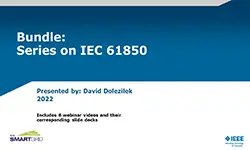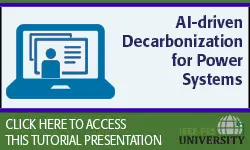Part 2 of a Series on IEC 61850: Fundamentals of Ethernet in DSS
David Dolezilek
-
Members: FreeSponsoring Society
IEEE Members: $11.00
Non-members: $15.00Length: 1:00:40
07 Apr 2022
IEC 61850 engineering practices define packetized Ethernet as a method for defining human to machine (H2M) and machine (M2M) or peer to peer (P2P) protocols. To enable interoperability among suppliers, IEC 61850 describes the use of nonproprietary manufacturing messaging specification (MMS) protocol and proprietary parallel redundancy protocol (PRP) from another standard (IEC 62439). IEC 61850 assures backward and forward compatibility and solution flexibility and durability by enforcing those defined methods co-exist with other methods not defined by IEC 61850 including hardwiring field contacts, nonproprietary distributed network protocol (DNP), and proprietary MIRRORED Bits Communications. IEEE 802.1 Ethernet defines generic connections where messages are published into the Ether, without device flow control, where Ethernet switches use “best-effort” buffer, store, and forward methods to send them toward their destination(s). In this session we will• Discuss using Ethernet for DSS messaging• Understand use of IEEE 802.1p priority and IEEE 802.1Q virtual LAN methods• Evaluate Ethernet connections, cabling, duplication, and redundancy




